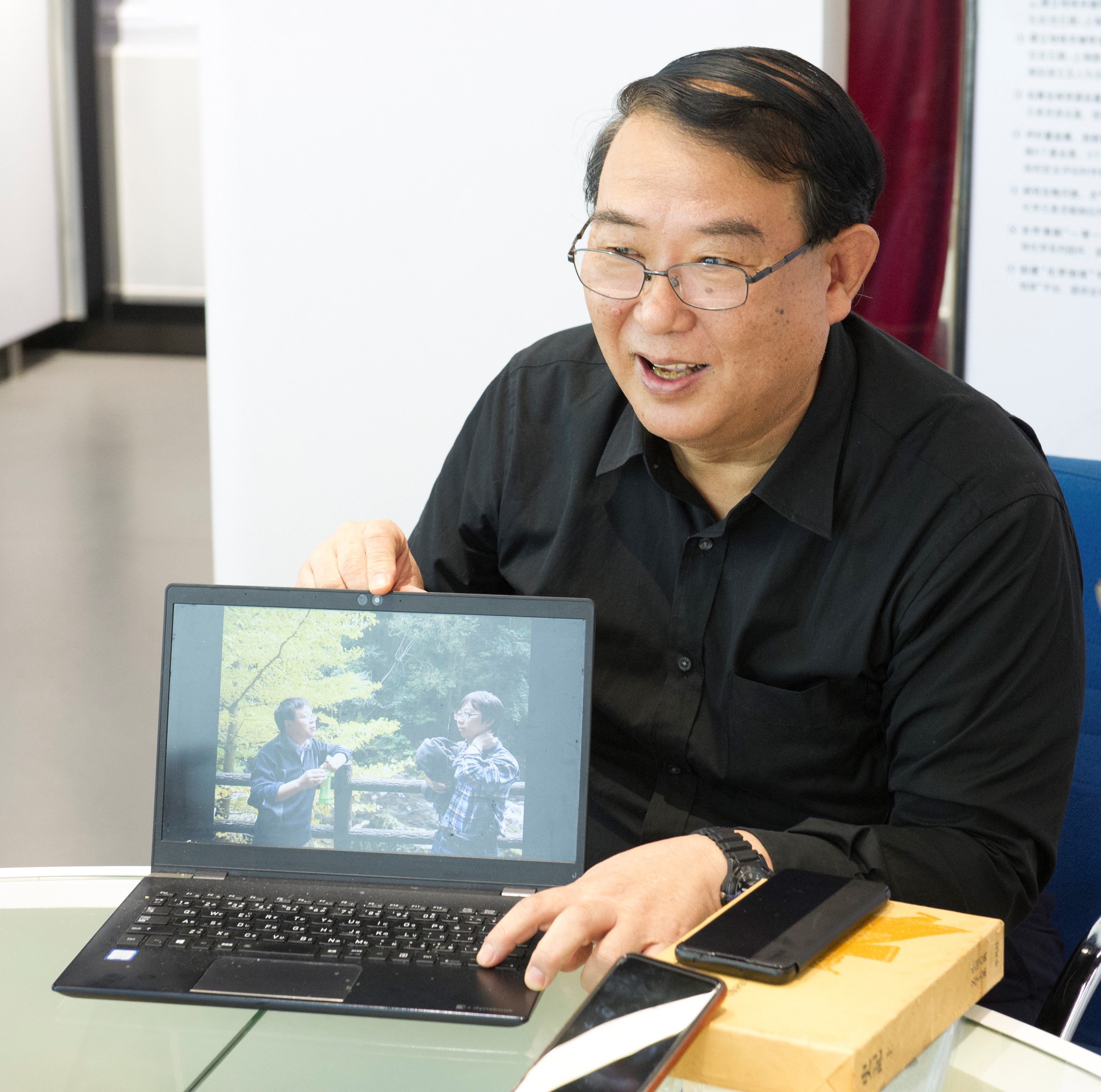
Talent and Tenderness beyond Science Besides research, Takahashi also engaged in administration with exceptional achievements. In 2002, the Japanese government set up the 21st Century COE (Center of Excellence) Program to introduce positive competition between universities in the country. After failing in its first application for the Program in the year dedicated to the earth science category, Tokyo Tech appointed Takahashi as program leader at the second attempt. Under his leadership, the university’s application entitled “How to build habitable planets” came first among some 300 rivals nationwide across all categories of disciplines in the year when the Program application was open for the last time. The university’s performance in conducting the Program afterwards was evaluated as excellent, which paved the way for the later establishment of the Earth-Life Science Institute (ELSI) at the university. Takahashi also served as the university’s library director. During his tenure, the costs of the electronic accessibility of international research journals soared, and consequently many universities in Japan stopped buying the service. However, keenly aware of the importance of e-journals to a research-focused university, Takahashi made great efforts both internally and externally: liaising with different departments within the university and visiting several universities in the US to discuss countermeasures. In the end, he managed to maintain his university’s subscription of e-journals. Such is the man that “looks up at the sky while planting his feet on solid ground” – Prof. LIU Xingcheng provides a metaphorical description of Takahashi, his former teacher and current co-worker, who not only has lofty ideals in science, but is also experienced in the ways of the world and always ready to address practical issues. It has impressed many colleagues that Prof. Takahashi finds something interesting in almost everything, often laughing with his head tilting back and eyes turning into crescents. When talking about cooking, one of his hobbies, he makes a funny joke by saying “Cooking is similar to experimental petrology. For cooking, you can choose your ‘starting materials’ and you can choose your heating temperature, spices, seasonings, etc.” Takahashi is easygoing and prefers to do everything by himself, always in a meticulous manner. When he was still working in Japan, he offered to host a visit for a group of Chinese students, which was supported by the Sakura Science Exchange Program. He himself led the 10-day trip throughout, and before that he personally took care of such basic matters as hotel booking and trial run of traveling routes. Recently when he had to fill in an application form in Chinese by hand, despite a Chinese colleague’s repeated offer of help, he insisted on copying the Chinese characters by himself stroke by stroke. In spite of mistakes in the first few drafts, he did not stop until he got everything correct on a single sheet. In 2015, Takahashi, then working at Tokyo Tech, hosts a visit funded by the Sakura Science Exchange Program for USTC students from China. (Image by GIG) When he learnt that GIG would do an interview with him, he carefully prepared, without being asked to, dozens of PPT slides containing photos that he selected according to the question list, and even inserted notes in English. On the first slide is a photo of him and his family during a hike in Mount Togasa on Japan’s Izu Peninsula, and a few Japanese words that combine to mean “Happy New Year” have been added to the photo in sort of a formal way. He has made it a rule to have a get-together with his children and grandchildren at the beginning of every year as well as every summer. He says he was a workaholic as a young man, so much so that he stayed overnight in his office three days a week, which lasted for one year. However, as he approached middle age, something unexpected happened in his life and it suddenly dawned on him that instead of immersing himself entirely in his work, he should pay more attention to the people around him – his family, co-workers, and students. Pointing at a photo taken at the party celebrating his retirement from Tokyo Tech, he tells us, “In this picture, there are five couples who are all former students of mine, with their children,” his voice tender. A photo he keeps shows his friendship with Chinese scientists. (Image by GIG) This is Takahashi’s fourth year in China. Deeply interested in the country’s ancient history, he has with him a Japanese version of Shiji, or Records of the Grand Historian of China, and one of his recently planned travel destinations is Yinxu, the ruins of an old city in China some 3,300 years ago. He also enjoys Guangzhou’s inclusiveness and speaks highly of the local cuisine. It is his wish to go on with his work here. He says he wants to bear witness to China’s development amid global transformations and continue helping Chinese young people scale new heights in science.


86-10-68597521 (day)
86-10-68597289 (night)

52 Sanlihe Rd., Xicheng District,
Beijing, China (100864)

